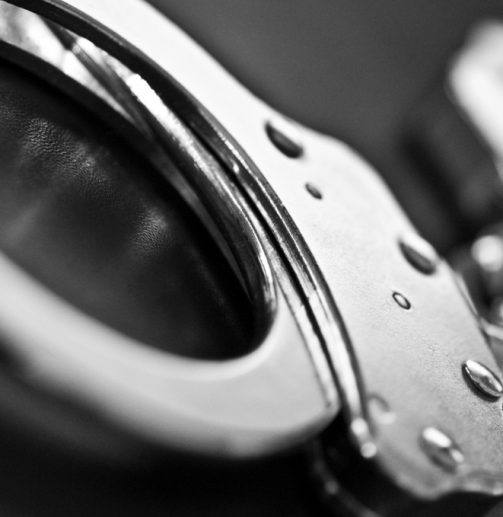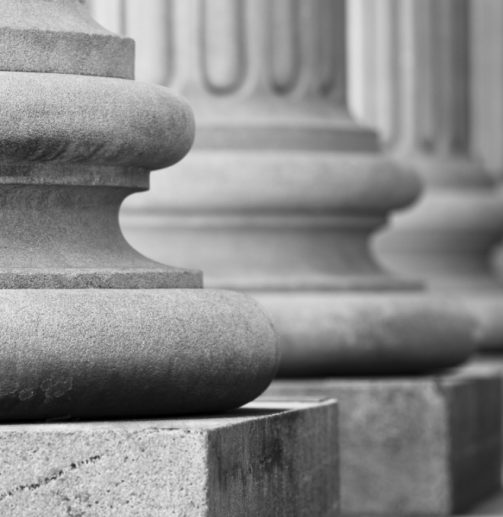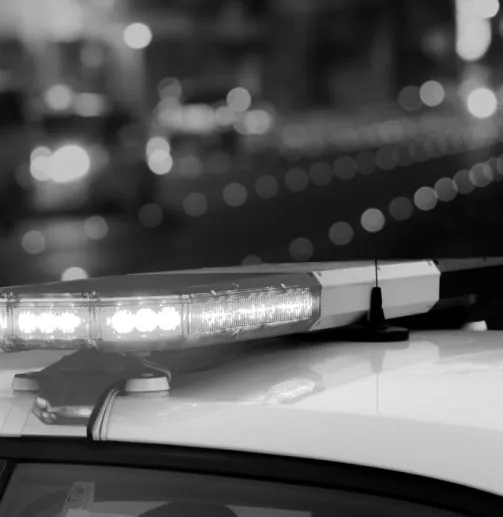“My goal is to lead my clients through what may initially feel like an impossible situation. Clients can count on me to hear their concerns and go the extra mile to turnaround a difficult situation.”
Matthew Bryant is an experienced trial and appellate attorney who focuses his practice on significant fiduciary and civil rights litigation matters. He achieves the best outcomes for clients by understanding his client’s experience, building relationships, attention to detail, and hard work.
He represents trustees, personal representatives, and beneficiaries when there are disputes involving estates and trusts. His fiduciary litigation practice includes will contests, caveat proceedings, disputes over testamentary capacity, accounting disputes, power of attorney disputes, and breaches of fiduciary duties.
Matthew also has been involved in numerous high-profile civil rights cases. He represents students harmed or injured at school and individuals whose rights were violated by illegal police conduct, including excessive force.
Matthew has an active criminal practice defending individuals charged with crimes or being investigated by law enforcement.
Before joining the firm, Matthew clerked for the Honorable Kathryn Grill Graeff of the Court of Special Appeals, now the Appellate Court of Maryland, and the Honorable Michele D. Jaklitsch of the Circuit Court for Anne Arundel County.
- District of Columbia
- Maryland
- New Jersey
- Pennsylvania
- US Court of Appeals for the Fourth Circuit
- US District Court for the District of Columbia
- US District Court for the District of Maryland
- US District Court for the District of New Jersey
- JD, University of Maryland Francis King Carey School of Law, 2007
- AB, Kenyon College, 2001
Fiduciary Trials and Appeals
- Successfully obtained a judgment at the conclusion of a bench trial against a former trustee for $757,070.04 based on the trustee’s failure to account for his use of trust property and successfully defended the judgment on appeal. The appellate decision is available here (PDF).
- Successfully persuaded a trial judge to grant a motion for judgment and dismiss a will challenge brought by a disinherited heir who unsuccessfully attempted to invalidate the decedent’s will.
- Represented Successor Personal Representative at trial and successfully defended judgment on appeal against one of the decedent’s children who forged signatures on bank signature cards. The decision is available here (PDF).
- Successfully obtained a judgment in a bench trial in the amount of $233,500.00 on behalf of a Personal Representative to an estate where the decedent’s estranged step-daughter wrote herself a check in the amount of $230,000 from the decedent’s account using a power of attorney the day before the decedent passed.
- Successfully defended, as part of a team, on appeal a decision by the Orphans’ Court that spouse who procured a marriage by undue influenced forfeited her right to claim an elective share against her husband’s estate. The appellate decision is available here (PDF).
Civil Rights Trials
- Jury awarded $8,000,000.00 (reduced to the cap on non-economic damages) to a child victim who was sexually assaulted in a common area of a high-rise apartment building based on the failure of the apartment building to maintain a secure building.
- Jury awarded $1,190,000.00 to a retired Prince George’s County Police Department Lieutenant illegally arrested and assaulted by a Maryland State Trooper.
- Jury awarded $4,000,000.00 (reduced to the $400,000 cap under the Local Government Tort Claims Act) to a former high school athlete who was assaulted and sexually assaulted at school by his teammates, which occurred due to negligent supervision.
Criminal Appeals
- The Appellate Court of Maryland reversed client’s conspiracy conviction based on a violation of the Fourth Amendment arising from an illegal search of the defendant’s cellular phone. The appellate decision is available here (PDF).
- The Supreme Court of Maryland concluded that a trial judge’s declaration of a mistrial over the defendant’s objection due to the client’s absence based on a medical emergency barred retrial under the Double Jeopardy clause of the Fifth Amendment to the U.S. Constitution. The reported decision in State v. Hart, 449 Md. 246 (2016) is available here (PDF). Video of the oral argument is available here (MP4).
- Barrister, The Cole-Davidson American Inn of Court, an Inn of Court dedicated to promoting diversity and excellence in appellate advocacy
- Prince George’s County Bar Association
- Maryland State Bar Association
- Board of Directors for Maryland Volunteer Legal Services from 2020-2023
- Presented on Reoccurring Issues in Fiduciary Litigation to the Prince George’s County Bar Association’s Probate, Estates, Trusts & Elder Law Seminar (January 26, 2019).






